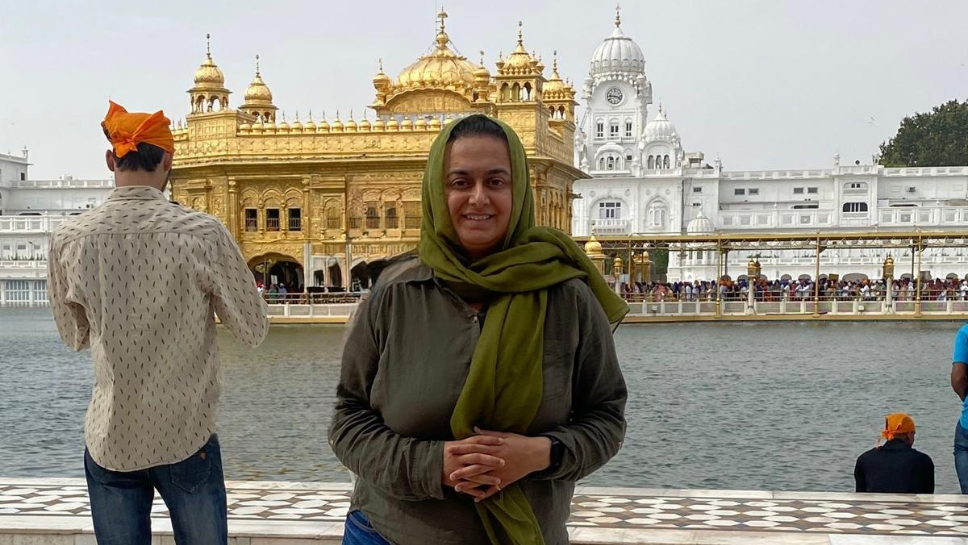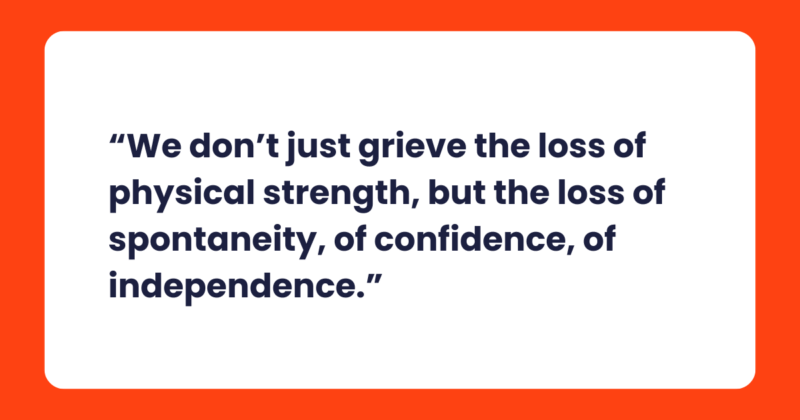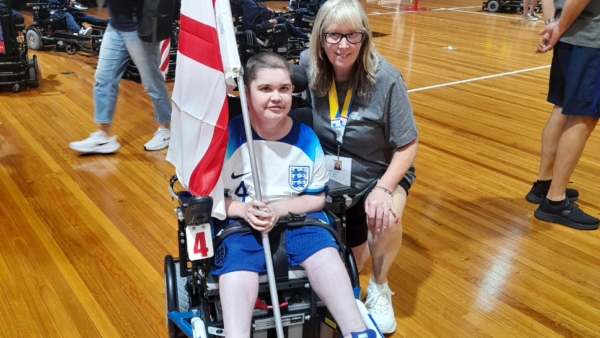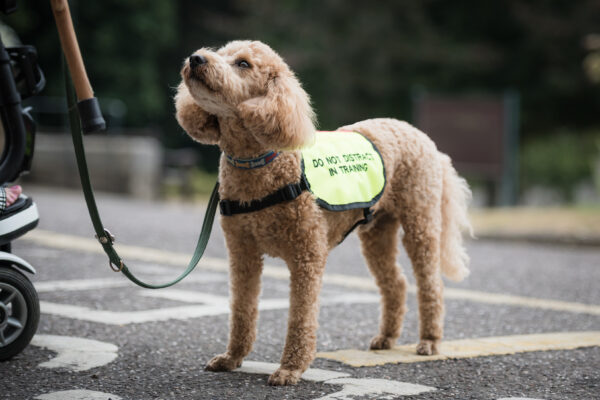Priyaneet has been involved in charity work since she was 10 years old. Now a Diversity, Equality and Inclusion Manager, as well as a Disability and Leadership Coach, Priyaneet uses her knowledge as a disabled woman from the Sikh community to advocate for others. She has been supporting us run and expand our South Asian Neuromuscular Community group since 2018.
“Having a disability can be isolating – I’m grateful I’ve found the South Asian Neuromuscular Community group.”

I’ve been a volunteer with Muscular Dystrophy UK for around seven years in various ways, including with the South Asian Neuromuscular Community group and peer mentoring, but also for my own support.
“Having Charcot-Marie Tooth (CMT) means I have changing needs, so it’s great to be part of a community that I can help and who are there to support me too.”
I know what it’s like to be looked down on
My Sikh religion keeps me grounded and instils values of love, compassion and being in service of others which is important to me and guides how I live my life. But being a female in the South Asian community can be hard, let alone being a woman with a physical disability. I’m lucky to have parents who are open-minded and supportive. However, culturally, I sometimes feel like a burden in my community.
“I’m lucky to have parents who are open-minded and supportive. However, culturally, I sometimes feel like a burden in my community.”
I’ve been told for most of my life that I’ll never get married. So much worth in my culture is judged by a woman’s physical capability to raise a family. I’ve had to do a lot of therapy to learn to love myself and acknowledge my own worth.
Even in general society, some people think it’s ok to judge someone who has a hidden disability. I used to work in investment banking and could only wear trainers due to the specific insoles I have to use to walk and support my ankles. I had a few senior leaders approach me and ask why I was wearing trainers in the office. Even when I explained, I had to take my shoes off and show them my insoles to prove my disability.
When this incident happened, I decided I wanted to change my career.
“I wanted to use my voice to help educate employers around disability awareness and show them that disabled people have great skills that are valuable to organisations.”
Everyone deserves a life of independence and the support to get into employment, which is why I love the advocacy work that I do.
Creating a space for the South Asian community
I’ve been volunteering with Muscular Dystrophy UK for a long time now, and some of my friends ask me why I don’t volunteer for a CMT charity.
“I tell them there’s just something about this charity that makes me feel warm and valued, and I think it’s important to get the message out there about all muscle wasting conditions, not just my own.”
Since the South Asian Neuromuscular community group has restarted, we’ve had a few online gatherings, one with medical professionals and one where we discussed the vision for the group and what the community need most.
The main aim is to make people in this community understand what medical and community support’s available to them in a format that is more accessible, such as with language translations.
Groups like this are needed to make people feel less alone and isolated in their journey. This is a group that you can come to where nobody will judge you, and you can become part of a community who understand what you’re going through and can help you navigate challenges you’re facing. You can become each other’s support systems and feel free in a space where you are seen and heard.
Support for the south asian community
The South Asian Neuromuscular Community Support Group connects members of the South Asian community, who are affected by muscle wasting conditions. They meet on Zoom and in person.
The South Asian Neuromuscular Community Support Group connects members of the South Asian community, who are affected by muscle wasting conditions.
Join our WhatsApp group to share experiences, chat and make friends.


